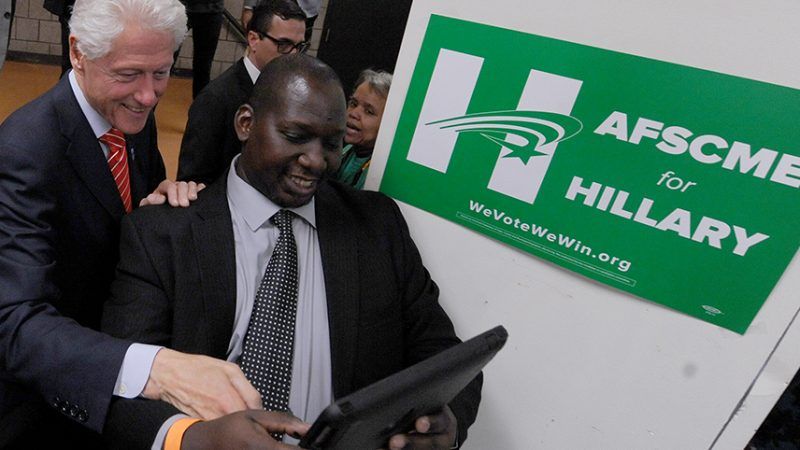Public Sector Unions on Trial

The U.S. Supreme Court will hear a case this term that could deliver a death blow to the legal privileges enjoyed by public sector unions.
The case is Janus v. American Federation of State, County, and Municipal Employees, Council 31. At issue is whether it is constitutional for state governments to require government workers to pay union fees as a condition of employment, even when those workers are not themselves union members.
The case was brought by Mark Janus, a state employee in Illinois who objects to paying mandatory fees to a union that he refused to join. Janus argues that this violates his First Amendment rights by forcing him to financially support political speech and activity he does not agree with.
Janus' overarching goal is to overturn the Supreme Court's 1977 precedent in Abood v. Detroit Board of Education, in which the Court approved mandatory public sector union fees on the grounds that non-union "free riders" should have to contribute something toward collective bargaining activities that benefit them. Over the past four decades, that ruling has provided a major boon to the treasuries of public employees unions. (A separate area of jurisprudence covers private sector unions.) The petition filed by Janus and his lawyers calls on the Supreme Court to "overrule Abood and declare [mandatory public sector union] fees unconstitutional."
For obvious reasons, the American Federation of State, County, and Municipal Employees takes the opposite view. The existing precedent "is sound and underlies important and longstanding tenets of this Court's First Amendment jurisprudence," the union said in its brief. "At its core, Abood acknowledged that certain labor-relations interests justify the small intrusion on employees' First Amendment interests that fair-share payments represent."
The high court tackled a similar question in a 2016 case called Friedrichs v. California Teachers Association. But after the sudden death of Antonin Scalia, the justices could not reach a majority decision and deadlocked 4–4. Most court watchers believe that if Scalia had been able to vote, Abood would have been overturned 5–4.
The Supreme Court is now back to its full strength. Will Scalia's replacement, Justice Neil Gorsuch, provide the fifth vote needed to overrule the precedent? We'll find out later this term.
